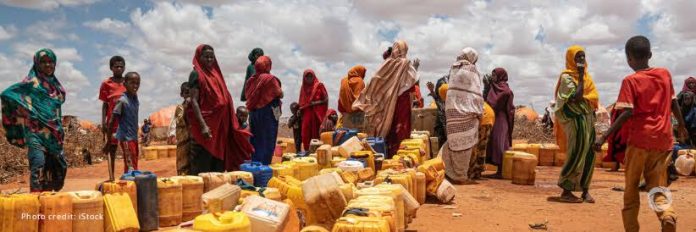Facebook Twitter (X) Instagram Somali Magazine - People's Magazine
Somalia has faced recurring humanitarian challenges over the past 25 years, from severe droughts and famines to political instability and conflicts that have claimed over half a million lives. A new project by the Global Public Policy Institute (GPPi), funded by the Inter-Agency Standing Committee (IASC), aims to critically assess international responses to these crises. The evaluation will specifically examine the effectiveness of the UN’s Scale-Up Activation initiative, launched in 2023 to address the aftermath of East Africa’s prolonged drought.
Severe Drought Conditions Compound Food Insecurity
The recent droughts, regarded as the worst in 40 years, have severely impacted Somalia’s agricultural and livestock sectors, leaving over half the population food-insecure. According to recent estimates, as many as 43,000 excess deaths were recorded in 2022 due to drought-related conditions. The food crisis has been further worsened by global economic pressures, including inflation and supply chain disruptions, as well as the long-term effects of the Covid-19 pandemic.
International Response Evaluation Launched
In response to Somalia’s humanitarian crisis, the IASC implemented the Scale-Up Activation in 2023 to mitigate the impacts of the drought and prevent famine. The initiative seeks to improve aid coordination and ensure that support reaches those in need while reducing the risk of aid diversion. To assess the effectiveness of these efforts, the IASC appointed GPPi to lead an Inter-Agency Humanitarian Evaluation (IAHE) in partnership with Raagsan, a Somali social enterprise.
Holistic Assessment for Future Readiness
The evaluation, scheduled for completion in December 2024, will analyze the goals and outcomes of the IASC’s Somalia Humanitarian Response Plans from 2022 and 2023. By gathering insights from stakeholders and affected communities, the project aims to determine why progress has either succeeded or lagged. GPPi’s Director Julia Steets and Elias Sagmeister, who lead the project, emphasize that the evaluation will focus on both the achievements and challenges faced by humanitarian actors in Somalia. The findings will be used to develop recommendations for more effective crisis response in the future.
Reducing Aid Diversion and Strengthening Local Impact
Part of the evaluation will focus on efforts to combat aid diversion, a persistent issue in Somalia. By examining the Humanitarian Country Team’s practices, the GPPi-led project seeks to provide actionable feedback on how to ensure aid reaches its intended recipients. This will include reviewing primary data from affected communities and input from on-the-ground humanitarian workers.
Publication and Key Insights
The final report, expected in December 2024, will provide a comprehensive overview of the humanitarian response to Somalia’s crisis and offer actionable recommendations for future interventions. The inception report is available for public review, offering preliminary insights into the project’s approach and objectives.

